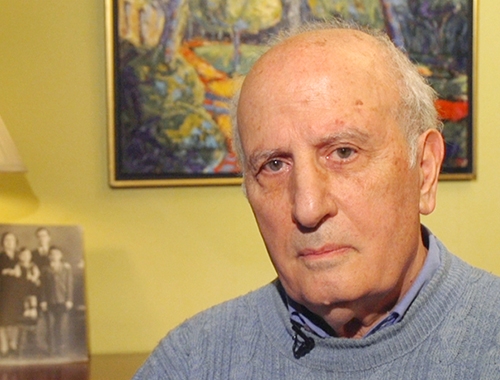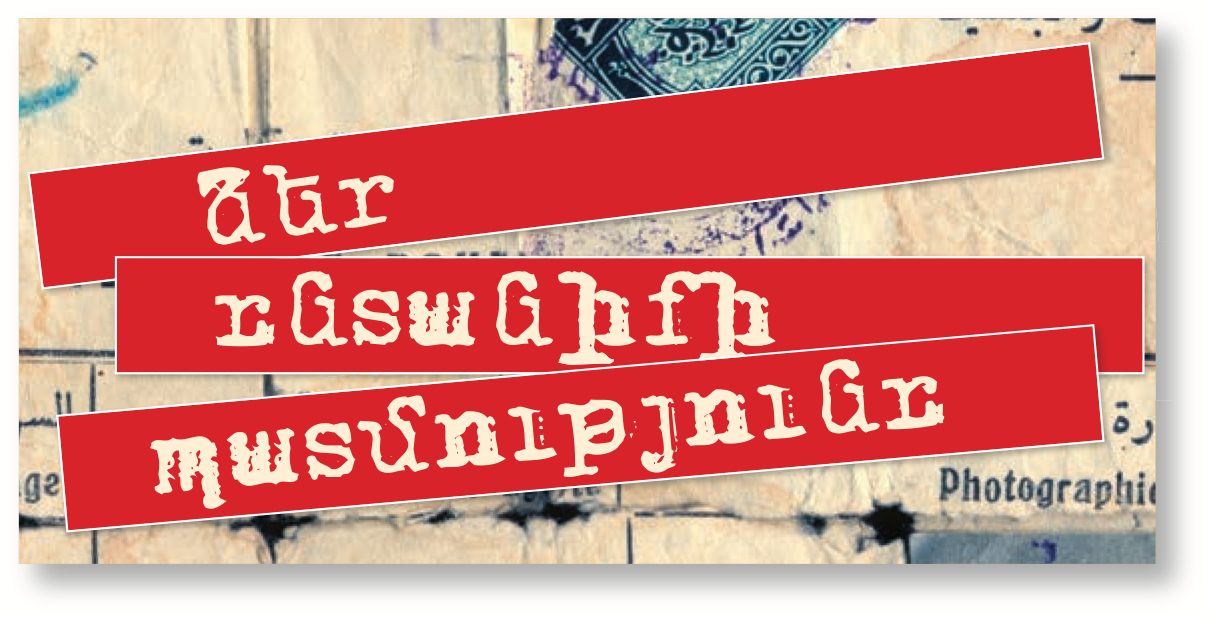 Immigrated from USA in 1947
Immigrated from USA in 1947
Hakob Filyan
My father wanted to go to Armenia as early as 1936. Later, when his brother and sister immigrated to Armenia from Lebanon. He said, “Let’s go. The families will reunite.” Naturally, there was a patriotic motivation as well. Like everyone else, they held out great hope for Armenia.
I was in the first grade. I was overjoyed and told my classmates that I was going to Armenia. We reached Naples by ship from New York. We then took a semi-transport ship to Batum. They took us to some kind of storage space. It was a great hall with many beds.
From Batum, we reached Yerevan by train. It was February and very cold. Luckily, we had friends and we lived in the house until they gave us a place to live in Yerevan’s Third District. They gave us an apartment, but there was no water or electricity. We only had the clothes we had brought. Our belongings arrived in the summer.
We built a house a year later in Yerevan’s Zeytoun neighborhood. The family had decided to build a house before moving and we had sent everything necessary from America – doors, windows, electric furnishings. They had even brought nails and tools. Everything. The house was built in 1951-1952. We lived there until 1976, when we left for France.
But let me tell you what happened before that. First, my father, like many others, was arrested. We were still living in the Third District. They came at night and woke us. They had lanterns because there was no electricity. They searched all the bags. I was a child, not yet eight. When we got up we asked where our father was. They told us they took him away but that he’d come back soon. A bit later, they told us they had taken him to jail. Eleven months later, they deported him to Kazakhstan, Karaganda, where he remained for four years.
We were finally able to familiarize ourselves with his case. We saw that they had asked him stupid questions. They had no reason to arrest him. They regarded him as a spy. They even called my sixteen-year-old brother a spy. They said he had brought a camera with him to take pictures and send them abroad. It was just an amateur camera.
We had a car when they arrested my father. They kept the car. We had a radio receiver and they shut it off. They didn’t return the car until they exiled my father to Karaganda.
We were in school when Stalin died. Crying, director Suzan Haroutyunyan, told us, “Father Stalin has died.” We didn’t know if she was really crying or pretending to. We were happy that there would be no school on the day of Stalin’s burial. They had organized a memorial service underneath Stalin’s statue, at the Monument. We went and circled around several times. They placed black ribbons with Stalin’s photo on our chest, as if we really loved him. One month hadn’t passed and they started to criticize Stalin.
Afterwards, we enjoyed a bit more freedom. We had more freedom to express ourselves and life started to change.
I was at home when my father returned. I ran to school. My brother was in class. I told him that our father had been freed and to run home. He didn’t ask permission from the teachers. He immediately left the classroom.
After being released from prison, my father never complained or criticized the Soviet system. Even when we were going to France, he didn’t want to leave and stayed till the end. He gave us permission to go, but said that he would stay. He was separated from my mother. They weren’t married according to Soviet law, but by American law. They were still married according to American law; there was no American divorce.
I got accepted in the foreign languages faculty at Yerevan State University. I was in the third year when I was taken to the army. In those years, there weren’t many young men so they drafted us even while in college. In the army, they suspected that I was a spy. The Special Branch would always ask me questions during the three years I served. “When did you come from America?” “Why did you come?” Always the same questions. I told them, if they suspected me of something then why did they take me to the army.
I was discharged and graduated university. Later, as an instructor and senior instructor, I worked at the Polytechnic Institute.
We grew up there and went to school. When you’re young, you don’t think about leaving the country. You’re concerned about daily matters. You study, get good grades, and are happy. You think about parties, dancing, and being happy.
To be honest, I later dreamt about leaving because, in our house, it was like living in America. Outside, it was Armenia. We were a bit envious of those who left.
It is true that we never integrated because they always looked down on us. We were not allowed to do certain jobs or be appointed to various posts. They’d say, No. You are a repatriate. You don’t have a right.” They didn’t let us get ahead. Many repatriates didn’t get top posts because repatriates weren’t allowed to become Communist Party members. Well, it has a one party country.
Our parents and grandparents longed for the homeland. That’s why they came to Armenia. They all had good jobs and were financially secure, especially the Americans. They all brought cars with them. They had good jobs, stores and all, but they moved to Armenia anyway. But the locals didn’t like us and called us all sorts of names. It was due to the propaganda from above, that these people are Soviet people; they aren’t good. “Look, he’s a capitalist. He has a car and wears nice clothes. He wears a capitalist hat, wears black glasses, and has a watch.” They stirred up jealousy even when land was being distributed. They never mentioned that it was all paid for in advance. “Look, the repatriates arrived and seized all the good places. They got land…” Instead, they should have said – your brothers and sisters have left all behind and have come to develop Armenia. They said many negative things. That’s why we never adapted.
We waited eight years for OVIR (Passport and Visa Division) to grant us permission to leave. They came up with the right word to refuse people – “it’s not expedient”. Most amazing was that they demanded a behavioral assessment. If you brought a negative evaluation, they wouldn’t let you leave. If you were a good Soviet citizen, then why would you ever leave the country?
Sine the OVIR in Armenia didn’t let us leave, we applied to the Moscow OVIR. They investigated and decided that the OVIR in Yerevan didn’t have the right to refuse us. The informed Armenia to let these people go.
We left for Armenia in 1949. Two weeks later, a law way declared that no child born in America had a right to leave the country. But we were already onboard the ship. Before leaving for France I applied to the American embassy to restore American citizenship to me and my brother. We left the Soviet Union with Soviet citizenship. We received American passports in France because it was dangerous to cross the Soviet border with American passports.



















